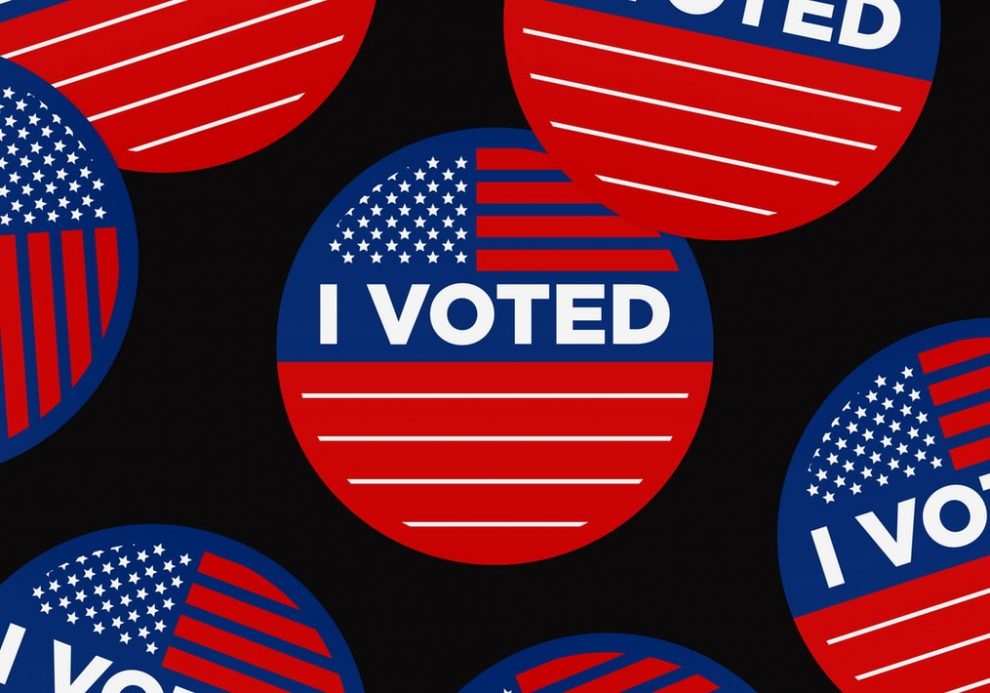This election cycle’s 2020 Democratic Debates have been exhausting, to say the least. Too many candidates on too small of a stage, short speaking times, trivial attacks, and far too little policy discussion. However, this entry is not to complain about the Democratic nomination process or debates. Rather, I am here to say what Democrats should be discussing to appeal to the vast majority of people in this country who are overwhelmed and exhausted by the lack of substantive political discourse. I see the anger by the American public not only at a President who fails to even use common sense and present respect for the values of our Democracy but also a divided and unpointed Democratic side, who has, at this point in time, failed miserably to persuade those who will decide the election in key swing states.
1. Voting Rights Access
Democrats’ biggest strength is their overwhelming support from minority groups. However, it is the fact that these people are systematically discouraged and prevented from expressing their will as an American citizen that has hindered the ability for Democrats to win by substantial margins. It is Republican State Legislatures that have enacted these roadblocks of voter suppression through voter ID laws, gerrymandering, poll-taxes, and voter disenfranchisement, for African Americans and Latino blocs more so than ever. However, by re-enacting an updated and modernized version of the Voting Rights Act, Congress and the President can prevent the manipulation of every vote. Presidential Democrats should bring up local figures like Stacey Abrams, Andrew Gillum, and Eric Holder, who are working tirelessly to register voters and fight against these egregious manipulations of our Democracy. Democrats, along with intending to pass this bill would have to remind the public that the Senate is where this bill will die if Democrats do not nominate a more moderate candidate. Arizona, Colorado, Maine, Iowa, North Carolina, and Georgia are all states where Senate Republicans are vulnerable in 2020 and a progressive (or possibly socialist) candidate at the top of the ballot that will alienate those swing voters that could hold the fate of either political gridlock or complete Congressional control. In addition, candidates should exploit that state legislatures will be redrawing congressional boundaries in 2020 and they will stay that way for the next 10 years (barring a court-ordered redrawing). Voting Rights access coupled with significant inroads in state legislatures can ONLY be possible with a moderate candidate at the top of the ticket to not push away swing voters that lie in swing states.
2. The Affordable Care Act and Trump’s Healthcare Failure (NOT MEDICARE FOR ALL)
We, as Americans, are incrementalists. And while the political pendulum may swing from party to party every few years, it moves slowly, and that’s a good thing. Political instability and consistent disequilibrium, especially after years of the ACA being gutted by Republican majorities, is not good for the Democratic Party nor our country. Democrats running for President can, instead, solidify and reinstate the ACA, supported by about 60% of all voters, and expose the Republican Party in its entirety for them destroying the hallmark and saving grace of the United States Healthcare System. Further, Democratic candidates should expose the lies that Donald Trump has stated on the campaign trail versus what he has done in office. The ACA was gutted, Medicare and Medicaid are in the process of being slashed, and he, along with Republican leadership have offered NO replacement. These are things that matter for the everyday citizen, especially the swing voter. Medicare for All is political suicide. It does not matter that young people and Latinos support it because those are the two groups that consistently have lower turnout than any other group in general elections. In addition, they are generally located in cities already in blue states. Why play to a group that already votes blue and has low turnout? In Michigan, Wisconsin, and Pennsylvania, not to mention Arizona, Iowa, Florida, and North Carolina, the majority of people support the ACA and we saw that in 2018, moderate Democrats pledging to support ObamaCare proved to have performed the best when running for the House and in state legislature races. Democrats have the ability to hammer Trump on that point, yet, they continue to get caught up in petty arguments and unnecessary squabbles.
3. Abortion, Abortion, Abortion
Democrats lost the debate against pro-life years ago. Allowing Republicans to state anti-abortion stances as pro-life has already given Republicans a win based on phrasing and messaging alone. However, post-2016 election, white women that voted for Trump, especially in more suburban locations, have really put into question their support for conservative and Republican ideology (or lack thereof). It was actually white women that swung in 2018 and helped elect Democratic majorities in the House and State Legislative chambers. Therefore, Democrats should be stumping with enshrining Roe v. Wade into law. States like Georgia, Ohio, Alabama, and Arkansas have been successful in limiting the right of the woman to choose. In doing so, they have prevented women who are in bad economic situations and cannot raise a child, those who have health complications, and those who have been raped or have committed incest cannot receive an abortion. They have been restricted in their right as a woman to choose what they do with their body. Pro-choice abortion stances are also wildly more popular among general election voters and women, who make up over half of the population of this country. Democrats could secure swaths of former-Republican female voters. However, they continue to fail to convince.
Democrats could crush it in 2020. These are the issues in which messaging can deliver them the win.






